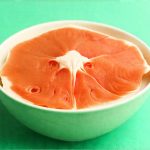Living with a sensitive bladder – often associated with conditions like Interstitial Cystitis (IC) or Overactive Bladder (OAB) – can significantly impact daily life. Frequent urges to urinate, discomfort, and even pain are common challenges. While many focus on what to avoid when managing these symptoms, there’s also a powerful role for dietary choices that actively soothe the bladder. Often, seemingly innocuous everyday foods can make a substantial difference in reducing irritation and improving overall comfort. This isn’t about restrictive diets or eliminating entire food groups; it’s about understanding how certain nutrients and properties within common foods can support bladder health and creating a more comfortable existence.
Many individuals find relief by identifying their personal triggers – those specific foods or drinks that consistently worsen symptoms. However, proactively incorporating bladder-friendly options into your diet can be just as important. This approach isn’t merely about minimizing negative impacts; it’s about actively nurturing the body with elements that promote healing and reduce inflammation. It’s vital to remember that everyone reacts differently, so what works wonders for one person may not have the same effect on another. The following exploration will highlight foods often well-tolerated by those with sensitive bladders, offering practical insights into building a more comfortable relationship with food and your body.
Foods Rich in Anti-Inflammatory Properties
Chronic inflammation is frequently linked to bladder irritation and discomfort. Incorporating foods naturally rich in anti-inflammatory compounds can help mitigate these effects. Omega-3 fatty acids, found abundantly in oily fish like salmon, mackerel, and sardines, are particularly beneficial. These fats work on a cellular level to reduce inflammation throughout the body, potentially lessening bladder sensitivity. Beyond fish, flaxseeds and chia seeds offer plant-based sources of Omega-3s; adding them to smoothies or yogurt is an easy way to boost your intake. Understanding how to support kidney filter function can also play a role in overall urinary health.
Furthermore, fruits and vegetables boasting vibrant colors are often packed with antioxidants, another key player in combating inflammation. Berries – blueberries, strawberries, raspberries – are excellent choices, as are leafy greens like spinach and kale. Turmeric, a spice commonly used in Indian cuisine, contains curcumin, a potent anti-inflammatory compound. Adding turmeric to meals or enjoying turmeric tea can be a flavorful way to support bladder health. It’s important to note that combining turmeric with black pepper enhances its absorption, maximizing its benefits. For those looking for more detailed guidance, exploring foods to avoid when managing a sensitive bladder can also be helpful.
Finally, consider incorporating foods containing probiotics. A healthy gut microbiome is closely linked to overall immune function and reduced inflammation. Fermented foods like yogurt (ensure it’s low in sugar!), kefir, sauerkraut, and kimchi are excellent sources of probiotics. These beneficial bacteria help balance the gut flora, potentially reducing systemic inflammation that could contribute to bladder issues. In fact, a urology-safe diet can also support your overall gut health.
The Role of Fiber in Bladder Health
Fiber isn’t always the first thing people think about when considering a sensitive bladder diet, but it plays a surprisingly important role. Adequate fiber intake promotes healthy digestion and prevents constipation – both factors that can put extra pressure on the bladder and exacerbate symptoms. – Constipation can lead to increased urgency and frequency, as the full bowel presses against the bladder. – Fiber also helps regulate blood sugar levels, which can indirectly impact bladder function. Learning how to identify foods that trigger urinary discomfort is a crucial step in managing your diet.
There are two main types of fiber: soluble and insoluble. Soluble fiber dissolves in water, forming a gel-like substance that slows digestion and helps stabilize blood sugar. Good sources include oats, barley, apples, pears, and beans. Insoluble fiber adds bulk to stool and promotes regular bowel movements. Found in whole grains, vegetables (especially broccoli and carrots), and fruits with edible skins, it keeps things moving smoothly through the digestive system. A balanced intake of both types is ideal for bladder health. Consider how foods that minimize the risk of bladder irritation can complement your fiber intake.
However, introducing fiber too quickly can sometimes cause bloating or gas, which might temporarily increase urgency. It’s crucial to gradually increase your fiber intake and drink plenty of water to prevent these side effects. Start by adding one high-fiber food to your diet each week and monitor how you feel. Aim for 25-30 grams of fiber per day, spread throughout meals and snacks. Supporting kidney health with appropriate dietary choices is also key.
Hydration: Beyond Just Water
While drinking enough water is essential for overall health, the type of hydration can be important for sensitive bladders. Plain water remains the gold standard – it’s readily available and doesn’t contain any potential irritants. However, herbal teas, particularly chamomile and ginger tea, can also be soothing choices. Chamomile has calming properties that may help reduce bladder spasms, while ginger possesses anti-inflammatory benefits. Avoid caffeinated beverages (coffee, black tea, soda) as they are known bladder stimulants for many people. Staying hydrated with gentle diuresis without irritation is a good strategy.
Beyond the beverage itself, how you hydrate matters too. Sipping water throughout the day is preferable to drinking large amounts at once. Guzzling down a lot of liquid can overwhelm the bladder and lead to increased urgency. Consider setting reminders or keeping a water bottle nearby as a visual cue to stay hydrated consistently. Also, be mindful of foods with high water content – cucumbers, watermelon, lettuce – which contribute to your overall fluid intake.
It’s also important to recognize that individual hydration needs vary. Factors like activity level, climate, and diet influence how much fluid you require. Pay attention to your body’s signals and adjust your intake accordingly. Monitoring the color of your urine can be a helpful indicator – pale yellow generally indicates adequate hydration.
Foods To Incorporate For Gentle Support
Many common foods offer gentle support for sensitive bladders due to their calming properties or minimal irritant potential. Bananas, for example, are rich in potassium and low in acidity, making them well-tolerated by many individuals with bladder issues. They also help regulate electrolyte balance, which can be disrupted by frequent urination. Similarly, blueberries are a powerhouse of antioxidants and have been associated with reduced inflammation, potentially soothing the bladder lining. If you’re looking to reduce swelling around the bladder, dietary choices can play a role.
Foods like rice, particularly white rice (as brown rice may be more irritating for some), are easily digestible and less likely to cause digestive upset that could pressure the bladder. Oatmeal is another gentle option – its soluble fiber content promotes healthy digestion without being overly stimulating. Importantly, preparation methods matter; avoid adding sugary toppings or excessive spices which can exacerbate symptoms.
Finally, melons (cantaloupe and honeydew) are generally well-tolerated due to their high water content and low acidity. They provide hydration while minimizing irritation. However, watermelon is sometimes reported as a trigger for some individuals so it’s best to observe your personal reaction. Remember that dietary sensitivities are highly individual.





















